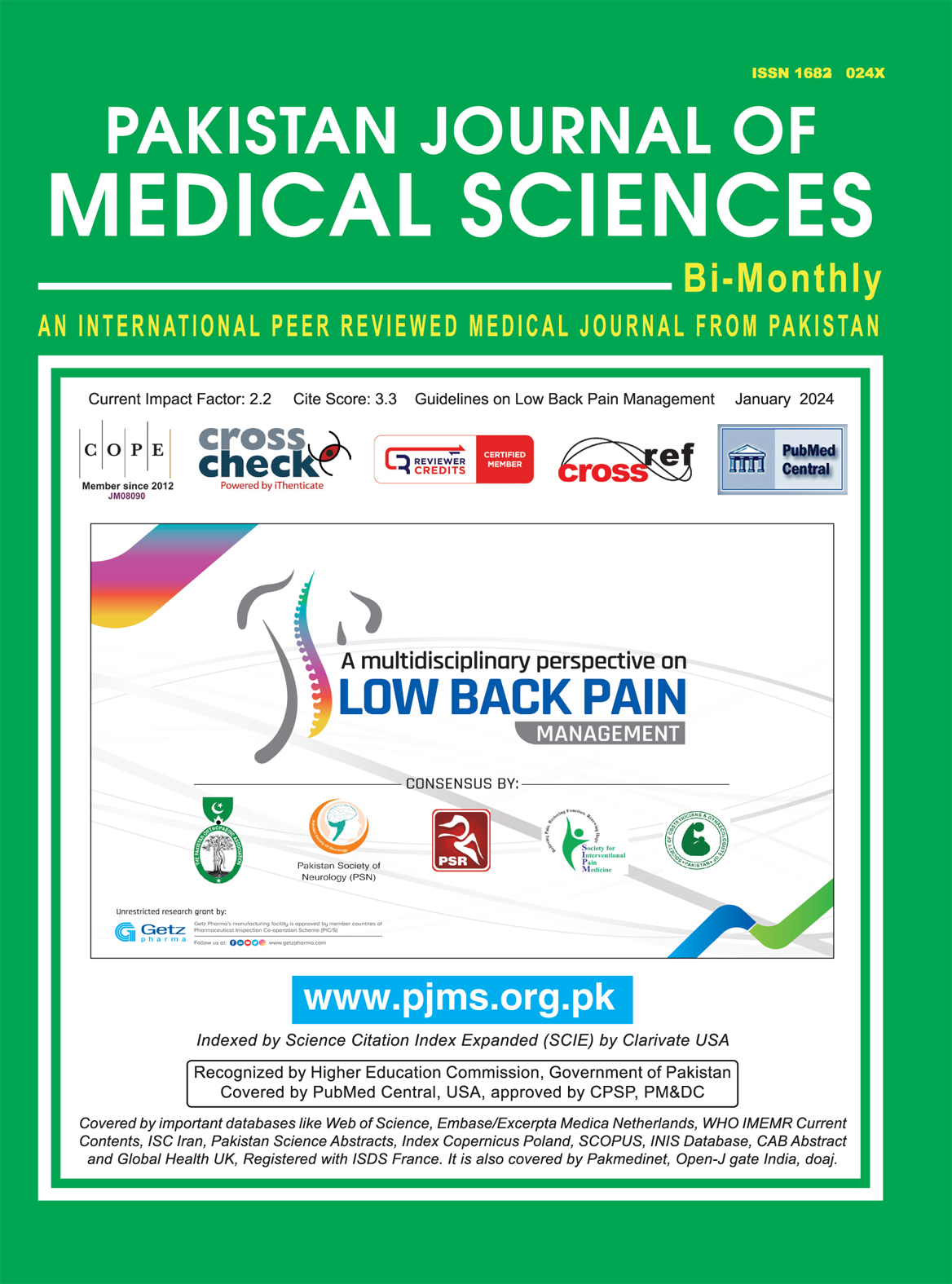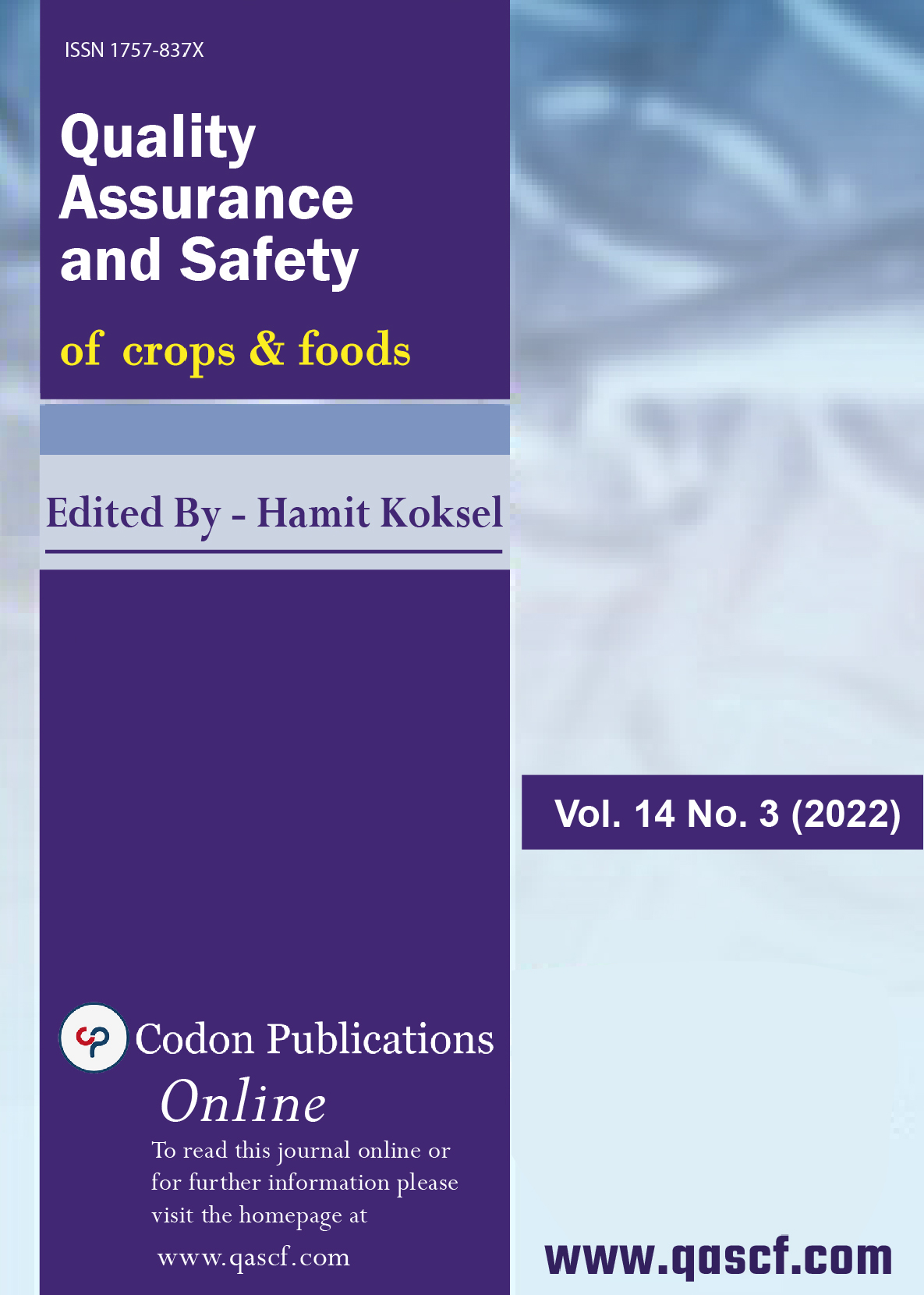Shao Yao Gan Cao Tang
How to submit an article:
- Registered users can submit any published journal article that has a unique DOI (Digital Object Identifier) name or link to Research Hub.
- For example, you can paste the full DOI link:
https://doi.org/10.1109/5.771073or just the DOI name:10.1109/5.771073into the field above and click submit. - The person who is first to submit a valid article to Research Hub will forever be credited for it, and every article submission earns you +6 Research Points.
Related Topics
Published research studies are articles that present the findings of original research that has undergone a peer-review process and has been made publicly available in scholarly journals, books or other media.

Effect of Self-developed Ye’an Analgetic Decoction/Jiawei Shaoyao Gancao Decoction Combined with Tramadol on TCM Symptom Scores and RLS Severity of patients with Restless Legs Syndrome
2024 Mar 18 Pakistan Journal of Medical Sciences Zhou B, Li W, Li Y, Sun D, Du X
The self-developed Ye’an Analgetic Decoction/Jiawei Shaoyao Gancao Decoction significantly improves clinical symptoms, reduces RLS severity, and enhances quality of life and sleep quality in RLS patients more effectively than basic treatment with tramadol alone.
Randomised Controlled Trial Clinical Study Shao Yao Gan Cao Tang Tramadol Restless Legs Syndrome
Efficacy and safety of Shaoyao Gancao Tang for restless leg syndrome: A systematic review and meta-analysis
2023 Feb 12 Quality Assurance and Safety of Crops & Foods Tian Z, Li R, Wei J, Huai W, Xia J, Jiang H, et al.
Meta-Analysis Systematic Review Shao Yao Gan Cao Tang Restless Legs SyndromeThe traditional Chinese herbal medicine Shaoyao Gancao Tang (SG-Tang) may be an effective and safe alternative treatment to relieve Restless Leg Syndrome.
Research insights are moderated by the Research Hub team and offer an at-a-glance overview of interesting research findings.

2023 Quality Assurance and Safety of Crops & Foods
The traditional Chinese herbal medicine Shaoyao Gancao Tang (SG-Tang) may be an effective and safe alternative treatment to relieve Restless Leg Syndrome.
Meta-Analysis Restless Legs Syndrome
Efficacy and safety of Shaoyao Gancao Tang for restless leg syndrome: A systematic review and meta-analysis
Tian Z, Li R, Wei J, Huai W, Xia J, Jiang H, et al.
Review Articles
Review articles summarise and critically evaluate the current state of research on a specific topic or field by synthesising multiple primary research studies.
Clinical Trials
Clinical trials are research studies that involve people and are conducted to evaluate the safety and efficacy of new treatments or interventions, such as drugs, medical devices, or behavioural therapies.
Study Protocols
Published study protocols are detailed plans that outline the objectives, methodology, statistical analyses, and organisation of a research study that have been made publicly available for others to review and use as a reference.
Presentation Slides

Meta-Analysis
The traditional Chinese herbal medicine Shaoyao Gancao Tang (SG-Tang) may be an effective and safe alternative treatment to relieve Restless Leg Syndrome.
Tian Z, Li R, Wei J, Huai W, Xia J, Jiang H, Xiong Y, Chen Y
Executive Summary
Write an executive summary in the form of a blog article on the topic of "Research into Chinese medicine treatment for Shao Yao Gan Cao Tang" summarising the research below and using language that can be easily understood by patients and avoiding medical jargon using a professional and caring tone of voice.
Write an executive summary in the form of a blog article on the topic of "Researched Chinese medicine treatments for Shao Yao Gan Cao Tang" summarising the research below in an objective and easy to understand way, and using language that can be easily understood by patients. Group the article into Chinese medicine treatments first, followed by nutrition and other treatments. Avoid using medical jargon and use a professional and caring tone of voice.
Write me a concise but easy to understand executive summary on the topic of "Chinese medicine treatments for Shao Yao Gan Cao Tang" based on the following research that I will give you. Your summary should be 2 paragraphs long in Australian English spelling and include references to the studies.
A Meta-Analysis published in 2023 in the journal Quality Assurance and Safety of Crops & Foods found that The traditional Chinese herbal medicine Shaoyao Gancao Tang (SG-Tang) may be an effective and safe alternative treatment to relieve Restless Leg Syndrome. The methodology used for this study involved a systematic review and meta-analysis of Randomized Clinical Trials (RCTs) assessing the efficacy and safety of SG-Tang treatment for Restless Leg Syndrome. Databases such as the Cochrane Library, PubMed, EMBASE, Web of Science, Chinese Biological Medicine Database, China National Knowledge Infrastructure, Wanfang Database, and VIP Information Database were searched. The primary and secondary outcome measurements looked at were the total effective rate, the International Restless Legs Syndrome Study Group Rating Scale for Severity of Restless Legs Syndrome, the Pittsburgh Sleep Quality Index, and the incidence of adverse events. The results of the study indicated that SG-Tang treatment led to significant improvements compared to conventional medications; it increased the total effective rate and lifted scores on the Severity of Restless Legs Syndrome and Sleep Quality Indices, while also lessening the incidence of adverse events. However, these conclusions should be interpreted with caution due to the limited data and the methodological quality of the included studies.
Moderation Tools
Topic
Sign In
Users not signed in are limited to viewing the 5 most recent items of content.